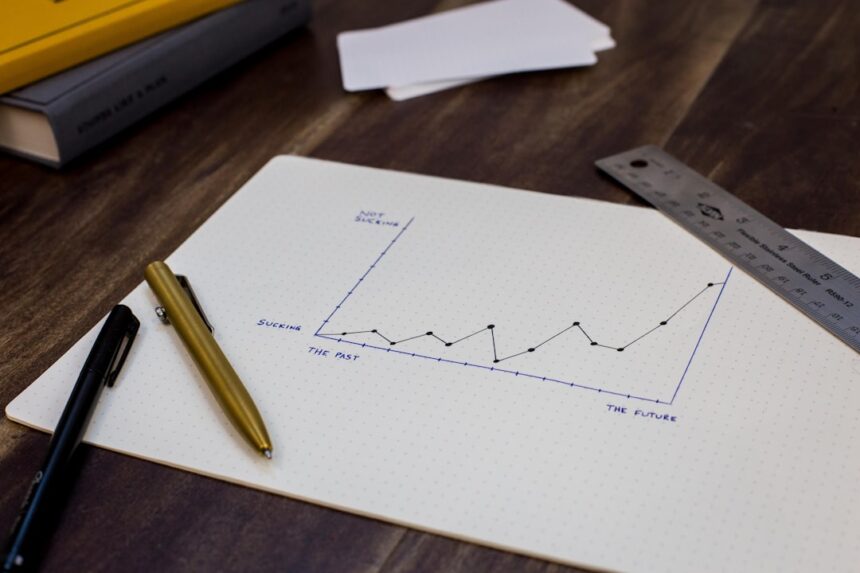To truly grasp the essence of productivity, you must first delve into its philosophical underpinnings. Productivity is not merely about getting things done; it encompasses a broader understanding of how you value your time and efforts. It invites you to reflect on what it means to be productive in your life, both personally and professionally.
This philosophical inquiry encourages you to consider the purpose behind your actions. Are you working towards meaningful goals, or are you simply filling your day with tasks that lack significance? By contemplating these questions, you can begin to align your daily activities with your core values and aspirations.
Moreover, the philosophy of productivity challenges you to think critically about the societal norms surrounding work and achievement. In a world that often equates busyness with success, it’s essential to question whether this is a healthy mindset. You might find that true productivity is not about the quantity of tasks completed but rather the quality of your output and the fulfillment you derive from your work.
This perspective allows you to redefine productivity in a way that resonates with your personal beliefs and life goals, ultimately leading to a more satisfying and meaningful existence.
Key Takeaways
- Understanding the Philosophy of Productivity: Productivity is not just about getting more done, but about achieving meaningful results and creating value.
- The Importance of Efficiency and Focus in Productivity: Efficiency and focus are crucial for maximizing productivity and achieving goals in a timely manner.
- Key Principles of Enhancing Efficiency: Prioritizing tasks, minimizing distractions, and optimizing workflows are essential for enhancing efficiency.
- Strategies for Improving Focus: Setting clear goals, practicing time management, and using techniques like the Pomodoro method can help improve focus.
- The Role of Mindfulness in Productivity: Mindfulness can help reduce stress, improve concentration, and enhance overall productivity by promoting a present-moment awareness.
The Importance of Efficiency and Focus in Productivity
Efficiency and focus are two pillars that support the structure of productivity. When you operate efficiently, you maximize the use of your resources—time, energy, and skills—allowing you to achieve more in less time. This efficiency is crucial in today’s fast-paced world, where distractions abound and demands on your attention are ever-increasing.
By honing your ability to work efficiently, you can create a sense of accomplishment that propels you forward, motivating you to tackle even more challenging tasks. Focus, on the other hand, is the lens through which you view your work. It allows you to concentrate on what truly matters, filtering out the noise that can derail your progress.
When you cultivate focus, you enhance your ability to engage deeply with your tasks, leading to higher quality outcomes. This deep engagement not only boosts your productivity but also fosters a sense of satisfaction and pride in your work. By prioritizing both efficiency and focus, you set yourself up for success in achieving your goals while maintaining a sense of balance in your life.
Key Principles of Enhancing Efficiency

To enhance your efficiency, it’s essential to adopt key principles that guide your approach to work. One fundamental principle is prioritization. By identifying the most critical tasks that align with your goals, you can allocate your time and energy more effectively.
This means learning to distinguish between urgent tasks and those that are truly important.
Implementing techniques such as the Pomodoro Technique or time blocking can significantly improve how you structure your day. These methods encourage you to break your work into manageable intervals, interspersed with short breaks, which can help maintain your energy levels and prevent burnout. By consciously managing your time, you create a rhythm that enhances your efficiency and allows for sustained productivity throughout the day.
Strategies for Improving Focus
| Strategy | Description |
|---|---|
| Time Management | Setting specific time blocks for focused work and minimizing distractions. |
| Mindfulness Practices | Engaging in meditation, deep breathing, or other mindfulness techniques to improve focus. |
| Regular Breaks | Taking short, regular breaks to rest and recharge the mind. |
| Healthy Lifestyle | Proper nutrition, regular exercise, and adequate sleep can improve focus and concentration. |
| Goal Setting | Setting clear and achievable goals to maintain motivation and focus. |
Improving focus requires intentional strategies that help minimize distractions and enhance concentration. One effective approach is creating a dedicated workspace that is free from interruptions. This space should be organized and conducive to productivity, allowing you to immerse yourself fully in your tasks.
Consider eliminating clutter and personal distractions from this area, as a clean environment can significantly impact your ability to concentrate. Additionally, setting specific goals for each work session can sharpen your focus. When you have clear objectives in mind, it becomes easier to direct your attention toward achieving them.
You might also explore techniques such as mindfulness meditation or deep breathing exercises to train your mind to remain present. These practices can help reduce anxiety and improve your overall ability to concentrate on the task at hand, ultimately leading to greater productivity.
The Role of Mindfulness in Productivity
Mindfulness plays a crucial role in enhancing productivity by fostering a heightened awareness of the present moment. When you practice mindfulness, you cultivate an ability to observe your thoughts and feelings without judgment, which can lead to improved focus and clarity in your work. This awareness allows you to recognize when distractions arise and gently guide your attention back to the task at hand.
By incorporating mindfulness into your daily routine, you can create a more intentional approach to productivity. Moreover, mindfulness encourages a sense of balance between work and personal life. It reminds you to take breaks and recharge when needed, preventing burnout and promoting long-term sustainability in your efforts.
By being mindful of your physical and emotional well-being, you can maintain a productive mindset that supports both your professional ambitions and personal fulfillment.
Balancing Technology and Productivity

In today’s digital age, technology can be both a boon and a bane for productivity. While it offers tools that can streamline tasks and enhance communication, it also presents numerous distractions that can derail your focus. To strike a balance between leveraging technology for productivity and avoiding its pitfalls, it’s essential to establish boundaries around its use.
You might consider setting specific times for checking emails or social media, allowing yourself uninterrupted periods dedicated solely to focused work. Additionally, utilizing productivity apps can help manage tasks more effectively without becoming overwhelmed by constant notifications. Tools like task managers or project management software can streamline your workflow while keeping distractions at bay.
By consciously choosing how and when to engage with technology, you can harness its benefits while minimizing its potential drawbacks.
Overcoming Procrastination and Distractions
Procrastination is a common hurdle that many face on their journey toward productivity. To overcome this challenge, it’s vital to understand the underlying reasons for procrastination in your case—whether it’s fear of failure, perfectionism, or simply feeling overwhelmed by the task at hand. Once you identify these triggers, you can develop strategies tailored to address them effectively.
One effective method for combating procrastination is breaking tasks into smaller, manageable steps. When faced with a daunting project, it can be easy to feel paralyzed by its size. However, by dividing it into bite-sized pieces, you create a clear path forward that feels less intimidating.
Additionally, setting deadlines for each step can instill a sense of urgency that propels you into action. By taking these proactive measures, you can gradually build momentum and overcome procrastination.
Cultivating a Productive Mindset
Cultivating a productive mindset involves adopting attitudes and beliefs that support your goals and aspirations. One key aspect is fostering a growth mindset—the belief that abilities can be developed through dedication and hard work. Embracing this perspective allows you to view challenges as opportunities for growth rather than obstacles to success.
When setbacks occur, instead of becoming discouraged, you can approach them as valuable learning experiences that contribute to your overall development. Additionally, surrounding yourself with positive influences can significantly impact your mindset. Engaging with individuals who inspire and motivate you creates an environment conducive to productivity.
Whether through networking or simply spending time with like-minded individuals, these connections can reinforce your commitment to achieving your goals while providing support during challenging times.
The Connection Between Health and Productivity
Your physical and mental health are intrinsically linked to your productivity levels. When you prioritize self-care—such as regular exercise, balanced nutrition, and adequate sleep—you equip yourself with the energy and focus needed to perform at your best. Neglecting these aspects of health can lead to fatigue, decreased motivation, and ultimately hinder your ability to be productive.
Moreover, mental health plays a significant role in how effectively you navigate challenges in both work and life. Stress management techniques such as mindfulness or engaging in hobbies can help maintain emotional well-being, allowing for clearer thinking and enhanced problem-solving abilities. By recognizing the connection between health and productivity, you can make informed choices that support both areas of your life.
Applying Philosophical Concepts to Enhance Productivity
Philosophical concepts can provide valuable insights into enhancing productivity by encouraging deeper reflection on your values and priorities. For instance, the Stoic philosophy emphasizes the importance of focusing on what is within your control while accepting what is not. This mindset can help alleviate stress related to external pressures or outcomes beyond your influence, allowing you to concentrate on taking meaningful actions aligned with your goals.
Additionally, existentialist ideas about creating meaning in one’s life can inspire you to pursue projects that resonate with your passions and values. By aligning your work with what truly matters to you, you cultivate intrinsic motivation that fuels sustained productivity over time. Embracing these philosophical concepts empowers you to approach productivity not just as a means to an end but as an integral part of living a fulfilling life.
The Ethics of Productivity: Finding the Balance
As you navigate the landscape of productivity, it’s essential to consider the ethical implications of how you pursue success. Striking a balance between ambition and well-being is crucial; pushing yourself too hard in pursuit of productivity can lead to burnout or negatively impact relationships with others. It’s important to recognize that true productivity should not come at the expense of personal integrity or mental health.
Finding this balance involves setting boundaries around work commitments while ensuring that you allocate time for rest and rejuvenation. Additionally, fostering an ethical approach means considering how your actions impact those around you—whether colleagues or family members—and striving for collaboration rather than competition. By embracing an ethical framework for productivity, you create an environment where both personal fulfillment and collective success thrive harmoniously.
In conclusion, understanding productivity through various lenses—philosophical inquiry, efficiency principles, focus strategies, mindfulness practices—enables you to cultivate a holistic approach toward achieving meaningful goals while maintaining balance in life. By integrating these insights into daily routines and decision-making processes, you empower yourself not only as an individual but also as part of a larger community striving for collective growth and well-being.
In the quest to enhance productivity, philosophical approaches can offer profound insights into how we perceive and manage our time and tasks. One such perspective is discussed in an article on Productive Patty’s website, which delves into the philosophical underpinnings of productivity and how they can be applied to everyday life. By examining the principles of mindfulness and intentionality, the article provides practical strategies for aligning one’s actions with their core values, ultimately leading to more meaningful and efficient work. For a deeper understanding of these concepts, you can read the full article by visiting Productive Patty’s article on productivity philosophy.
WATCH NOW! Nietzsche: Destroy Your Laziness Before It Destroys Your Career
FAQs
What is philosophy?
Philosophy is the study of fundamental questions about existence, knowledge, values, reason, mind, and language. It seeks to understand the nature of reality and the human experience.
How can philosophy increase productivity?
Studying philosophy can increase productivity by improving critical thinking skills, problem-solving abilities, and decision-making processes. It encourages individuals to think deeply and analytically about complex issues, leading to more effective and efficient solutions.
What are some philosophical concepts that can enhance productivity?
Some philosophical concepts that can enhance productivity include Stoicism, which promotes resilience and self-discipline, and existentialism, which encourages individuals to take responsibility for their actions and choices. Additionally, utilitarianism can help individuals prioritize tasks based on their overall impact and benefit.
Can philosophy be applied in the workplace?
Yes, philosophy can be applied in the workplace to improve productivity. It can help employees think critically, communicate effectively, and make ethical decisions. Philosophical concepts can also be used to develop organizational strategies and foster a positive work culture.
Are there specific philosophers whose ideas can be beneficial for productivity?
Yes, there are several philosophers whose ideas can be beneficial for productivity. For example, the writings of Aristotle on ethics and virtue can inform leadership and management practices, while the existentialist philosophy of Jean-Paul Sartre can inspire individuals to take ownership of their work and goals.




